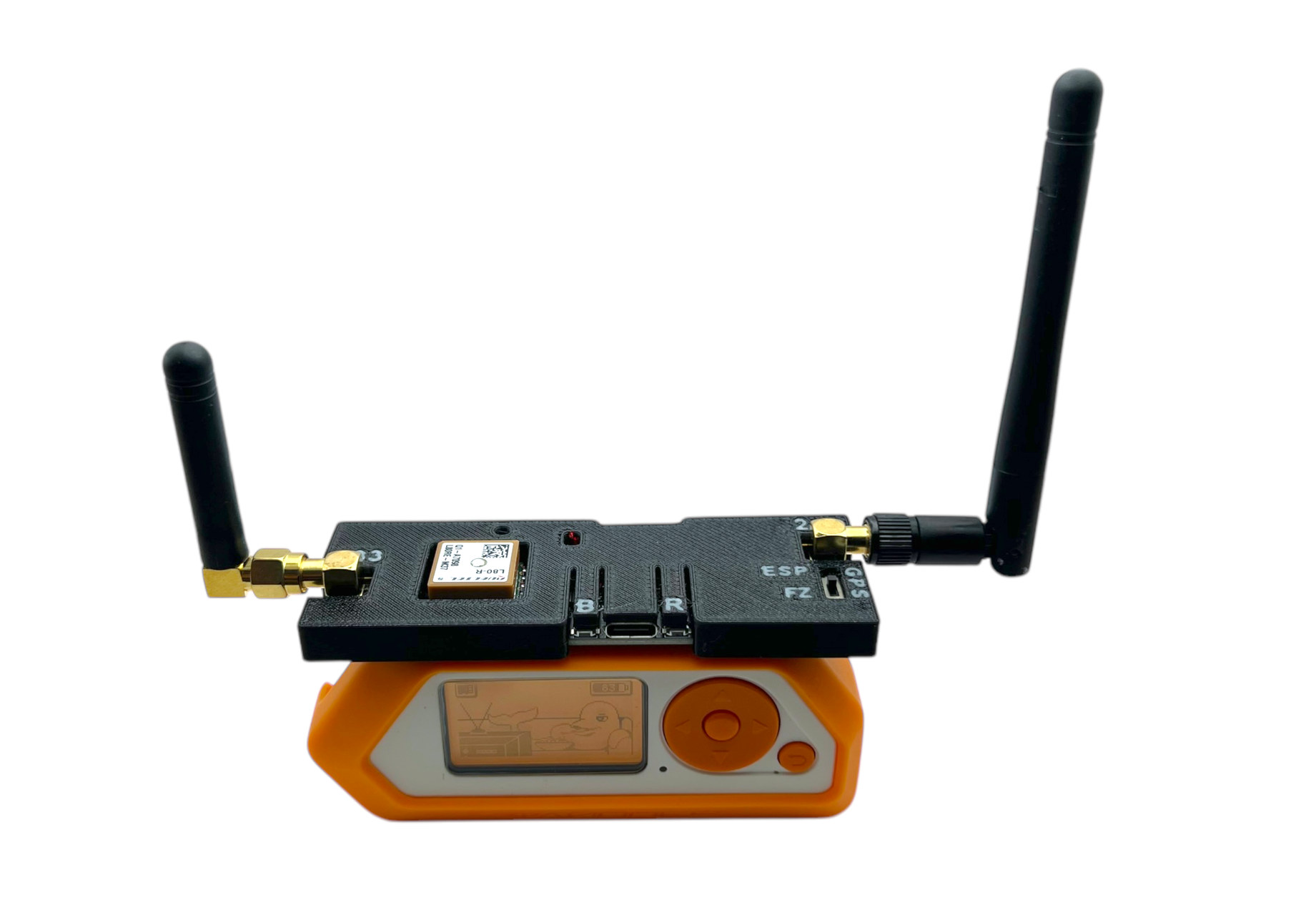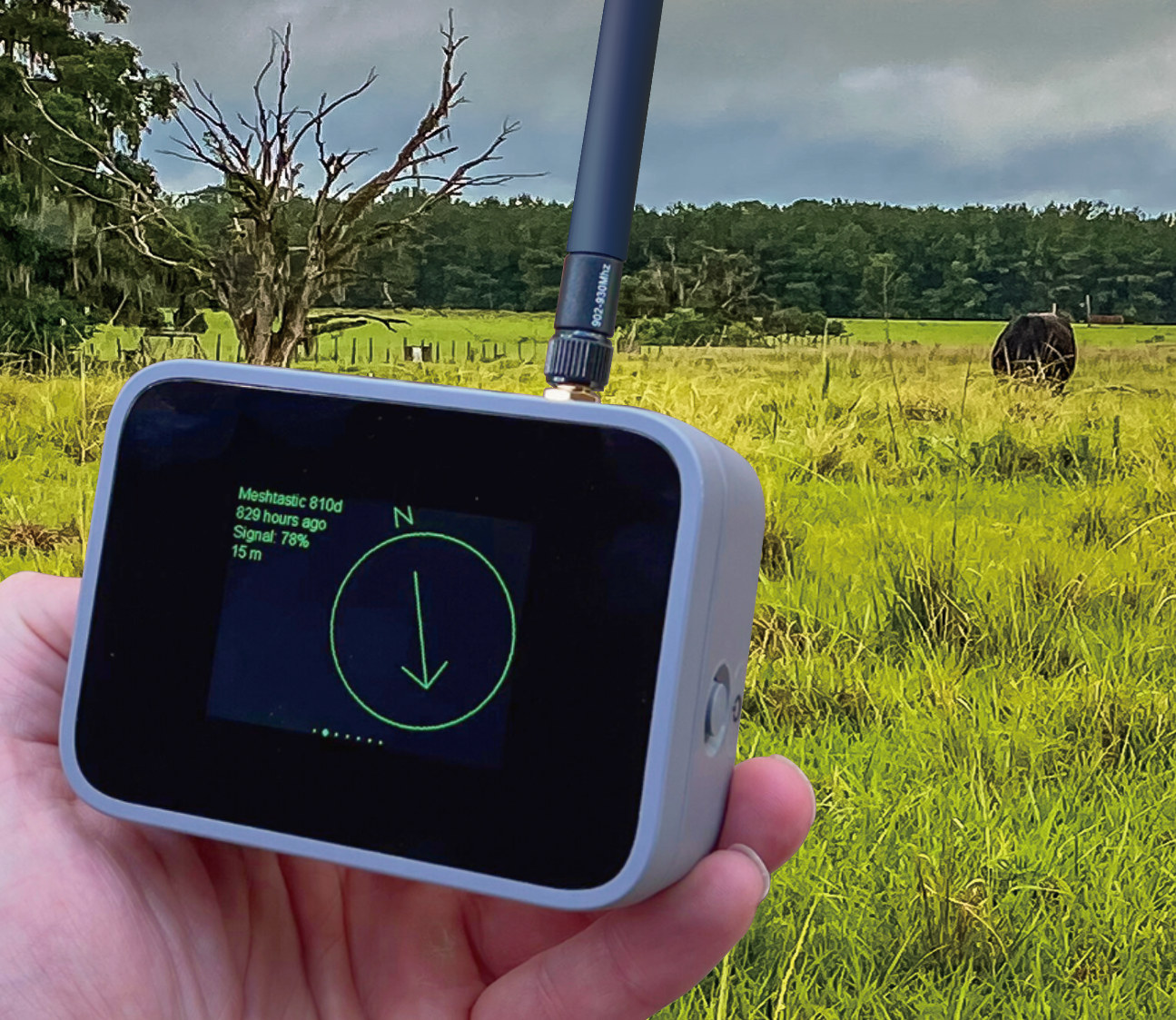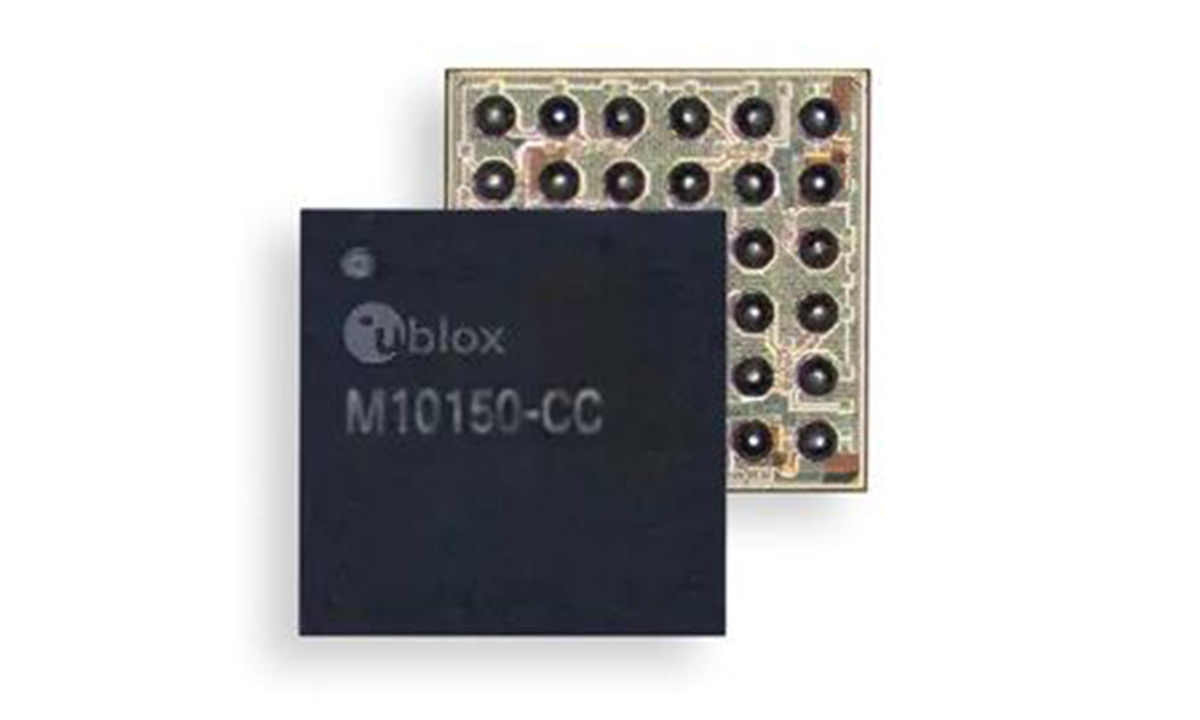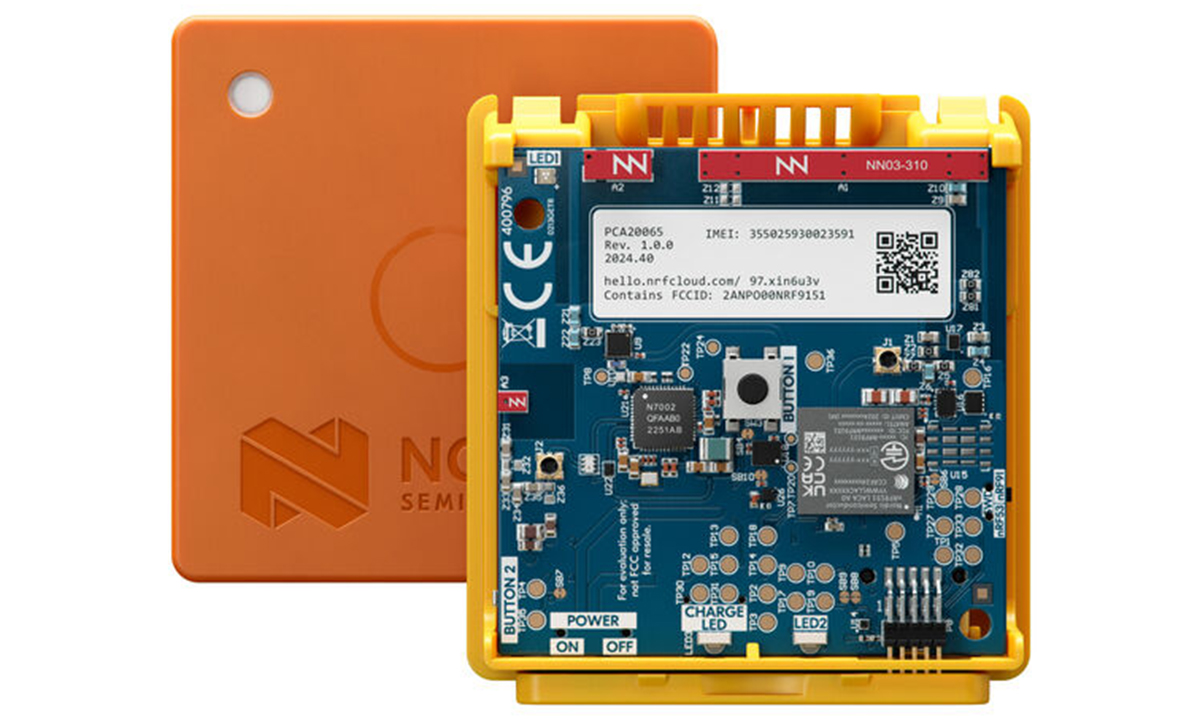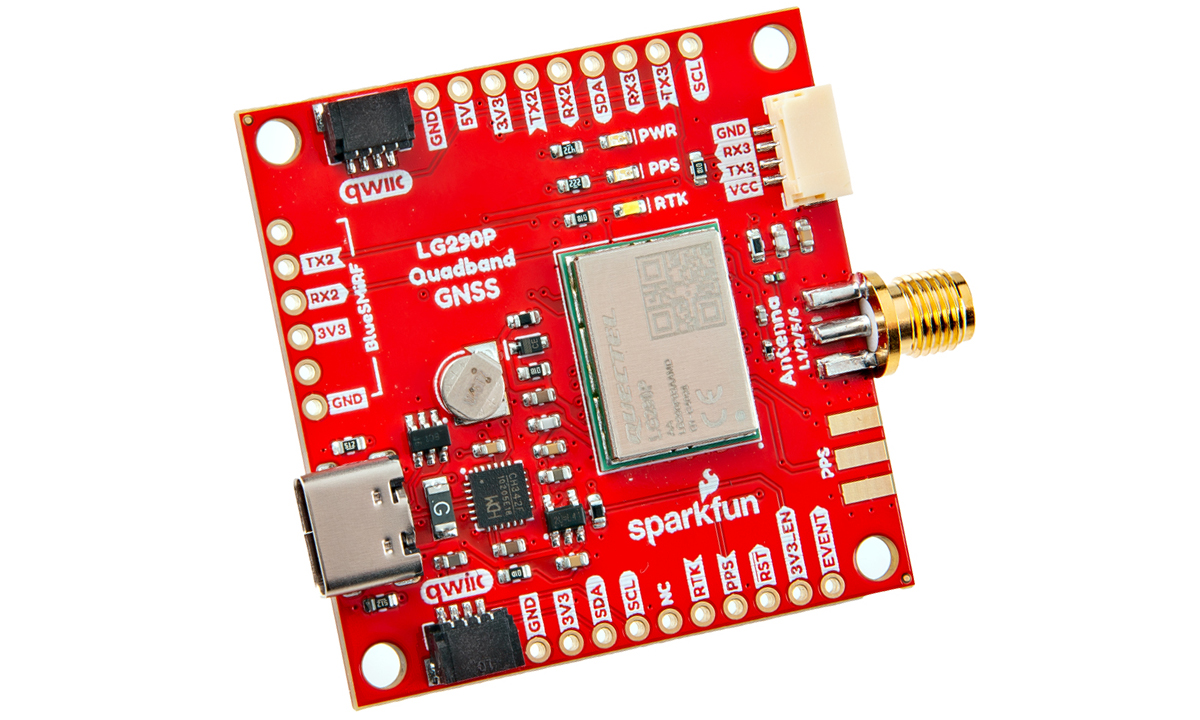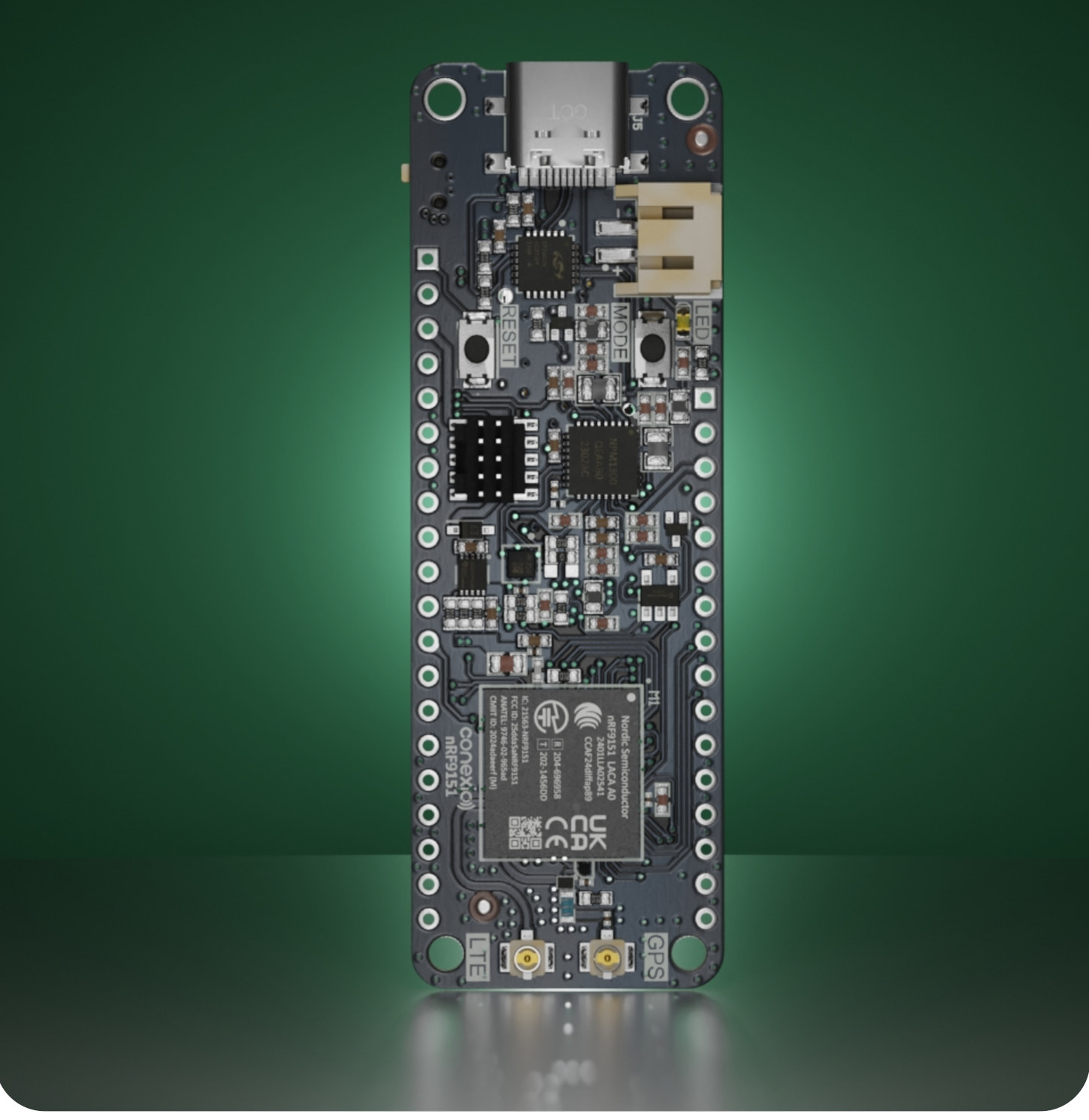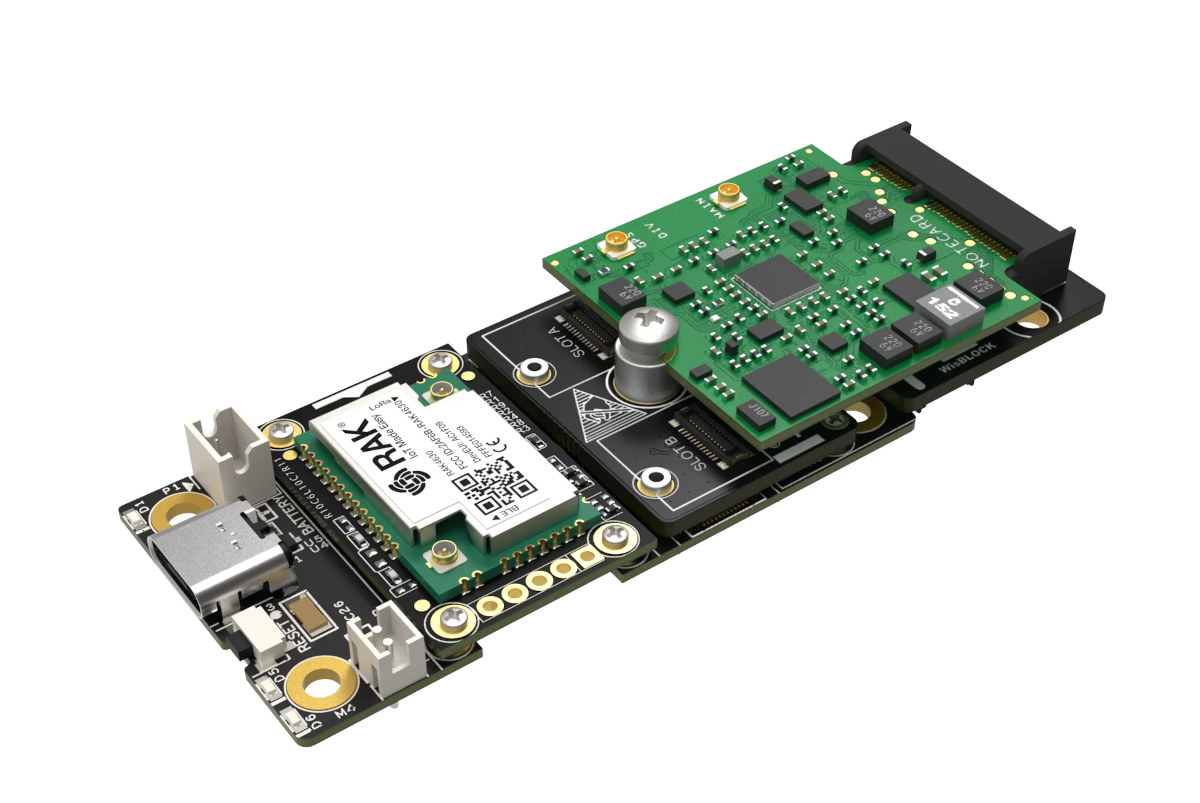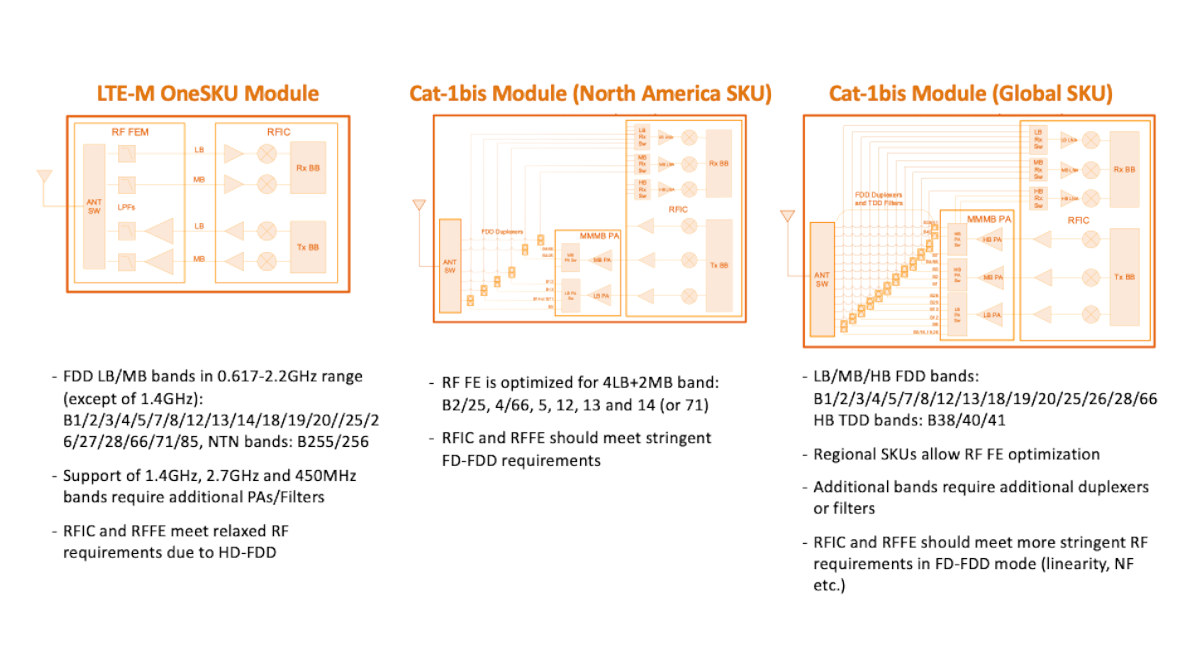Sacred Labs’ FlipMods Combo is a 3-in-1 expansion module for the Flipper Zero that combines an ESP32 WiFi and Bluetooth SoC, Texas Instruments CC1101 Sub-GHz wireless microcontroller, and an unnamed GPS module. The expansion module is housed in a neat 3D-printed case and features a built-in GPS antenna, external WiFI/Bluetooth & Sub-Ghz antennas, as well as a switch to send the GPS data to the ESP32 chip or the Flipper Zero. The ESP32 module is preloaded with the Marauder firmware also used in the ESP32 Marauder Pocket Unit and Mayhem v2 for Flipper Zero for penetration testing with Wi-Fi scanning, de-authentication attacks, packet sniffing, and more. FlipMods Combo specifications: Wireless modules ESP32-WROOM-32UE for WiFi and Bluetooth; external SMA antenna (long) Texas Instruments CC1011 for 315, 433, 868, and 915MHz ISM bands; external SMA antenna (short) GPS module with internal antenna Storage – MicroSD card slot up to 32GB USB – […]
WisMesh TAP is a battery-powered Meshtastic client with a touchcreen display housed in an IP65-rated enclosure
RAKwireless’ WisMesh TAP is a battery-powered Meshtastic client with an integrated TFT touchscreen display and an IP65-rated enclosure making it suitable for outdoor use. The device supports 800 and 900 MHz Meshtastic networks and includes a GNSS module and motion sensor to provide location information through the network, besides offering off-grid messaging without a smartphone thanks to an on-screen keyboard. WisMesh TAP specifications: Core module (likely RAK4631 WisBlock Core module?) Wireless SoC – Nordic Semi nRF52840 MCU with BLE 5.0 LoRa transceiver – Semtech SX126x series with support for Meshtastic 8xx and 9xx MHz networks 800 MHz – RU864/ IN865/ EU868 900 MHz – US915/ AU915/ KR920/ AS923 Display – 320×240 TFT touchscreen display with on-screen keyboard GNSS – RAK12500 module with u-blox ZOE-M8Q GNSS location module Sensor – RAK1904 module with STMicroelectronics LIS3DH 3-axis acceleration sensor Misc Power Button 2dBi external antenna for LoRa Internal antennas for BLE and […]
u-blox UBX-M10150-CC – A tiny GNSS receiver chip for wearables with 10mW power consumption
u-blox has launched the UBX-M10150-CC GNSS receiver chip tailored for wearables such as sports and smartwatches thanks to its tiny size (2.39 x 2.39mm) and an ultra-low power consumption of just 10mW. The chip supports GPS, Galileo, BeiDou, and QZSS/SBAS constellations and features LEAP (Low Energy Accurate Positioning) technology for efficient and accurate positioning up to a 1.5m range. u-blox UBX-M10150-CC specifications: Receiver type – u-blox M10 engine GNSS technology GPS L1 C/A, QZSS L1 C/A/S, BeiDou B1I/B1C, Galileo E1B/C SBAS L1 C/A – WAAS, EGNOS, MSAS, GAGAN Navigating Frequency – Up to 2 Hz (LEAP) and up to 12 Hz (High Performance) Accuracy – 1.5 m CEP (Circular Error Probable), horizontal position Response Time – Cold Start (28s), Hot Start (1s), Aided Start (1s) Sensitivity Tracking & Navigation (-159 dBm), Reacquisition (-158 dBm) Cold Start (-148 dBm), Hot Start (-159 dBm) Tracking features LEAP technology Data batching – […]
Nordic Thingy:91 X multi-sensor cellular IoT platform combines nRF9151 LTE IoT SiP, nRF5340 BLE SoC, and nRF7002 WiFi 6 IC
Nordic Semiconductor introduced the Nordic Thingy:91 in mid-2019, a cellular IoT prototyping platform built around the Nordic nRF9160 system-in-package (SiP). It supports LTE-M, NB-IoT, and GPS, and includes features like an Arm Cortex-M33 core, Arm TrustZone security, and flash memory. The platform is ideal for creating IoT Proof-of-Concepts, demos, and prototypes, making it easy to test and deploy IoT applications. The upgraded Nordic Thingy:91 X features the new Nordic nRF9151 SiP, offering support for LTE-M, NB-IoT, GNSS, and DECT NR+ for global connectivity, integrates the nRF5340 SoC for USB and Bluetooth LE, and the nRF7002 IC for Wi-Fi locations. The platform includes sensors for environmental and motion sensing, one expansion connector for Qwiic/STEMMA QT and Grove modules, and antennas for LTE, GNSS, and Wi-Fi. Additionally, the kit also features a Nano/4FF SIM slot, two SIM cards, and a 1,350 mAh Li-Po battery managed by nPM6001 and nPM1300 PMICs, to support field […]
SparkFun introduces Quadband GNSS RTK Breakout board with Quectel LG290P module for high-precision navigation
SparkFun has released the Quadband GNSS RTK Breakout featuring the Quectel LG290P module designed for high-precision real-time kinematic (RTK) applications. It supports GPS, GLONASS, Galileo, BDS, QZSS, and NavIC constellations, with the ability to simultaneously receive signals from L1, L2, L5, and L6/E6 frequency bands. The module includes support for SBAS augmentation systems (e.g., WAAS, EGNOS, GAGAN) and PPP services (e.g., BDS PPP-B2b, QZSS CLAS), delivering reliable positioning with fast convergence times for precision navigation tasks. The breakout board offers a compact design (43.2 x 43.2mm) and multiple expansion options including 24 PTH pins, dual 4-pin JST Qwiic connectors, three UART interfaces, a USB-C connector, and additional PTH pins for BlueSMiRF/Serial-to-UART. With its RTK support and advanced GNSS capabilities, the board is ideal for applications requiring high-accuracy positioning and robust navigation performance. Previously, we covered several GNSS boards including the SparkFun GNSS L1/L5, u-blox EVK-LEXI-R10, and Conexio Stratus Pro and […]
Conexio Stratus Pro nRF9151 low-power IoT development kit supports LTE-M/NB-IoT, DECT NR+, GPS, and more
Conexio Stratus Pro nRF9151 is an IoT development kit based on Nordic Semi nRF9151 system-in-package (SiP) with LTE-M/NB-IoT, DECT NR+, and GNSS connectivity designed for battery-powered cellular-connected products such as asset trackers, environmental monitors, smart meters, and industrial automation devices. It’s offered with the “Stratus Pro Expansion Dock” allowing users to add WiFi 6 through an nRF7002 expansion board and various other modules via Grove, Qwiic, MikroBus, and Seeed Studio’s XIAO connectors or sockets. It’s an update to the original Conexio Stratus Pro based on nRF9161 introduced last June with a very similar feature set. Let’s have a deeper look to find out any potential differences between the two versions of the devkit. Conexio Stratus Pro nRF9151 specifications (with changes highlighted in bold or strikethrough): System-in-package – Nordic Semi nRF9151 SiP MCU – Arm Cortex-M33 clocked at 64 MHz with 1 MB Flash pre-programmed MCUBoot bootloader, 256 KB RAM Modem […]
Giveaway Week 2024 – RAKwireless Blues.ONE LoRaWAN, LTE-M, and NB-IoT devkit
For the fourth year in a row, RAKwireless is participating in CNX Software’s Giveaway Week, and this year, the company is offering the Blues.ONE IoT development kit with LoRaWAN, LTE-M, and NB-IoT connectivity and 500MB of cellular data through the Blues NoteCard. The devkit can be used to prototype or develop IoT devices for industrial automation and asset-tracking applications and relies on the WisBlock modular IoT prototyping system with the RAK13102 WisBlock Blues Notecarrier, the Blues NoteCard, a WisBlock Base Board, and a WisBlock Core module. Blues.ONE kit content: RAK4631 WisBlock Core Module based on Nordic Semi nRF52840 Arm Cortex-M4F microcontroller @ 64 MHz with 1 MB Flash, 256 KB RAM, Bluetooth Low Energy 5.0 protocol stack Semtech SX1262 LoRa Transceiver with LoRaWAN 1.0.2 protocol stack RAK19007 WisBlock Base Board with 4x sensor slots, 1x IO slot, a USB Type-C port, a rechargeable battery connector, and a solar panel connector […]
Maximizing Connectivity with LTE-M in Asset Trackers
CNXSoft: This is a guest post by Dana Cohen, Product Marketing Manager at Sony Semiconductor Israel, discussing LTE-M in asset trackers and comparing it to LTE Cat1.bis, another LPWAN technology. Connectivity has been a game changer in the asset-tracking landscape. Personal devices, pets, vehicles, international packages, or any kind of asset can all easily be tracked through the cloud. This has opened the door to innovative use cases that have transformed global shipping, automotive loans, retail management, construction, and other industries. Using asset trackers allows shippers to track the temperature and condition of products and raw materials as they move on ships, planes, and trucks through the supply chain. Families have a better chance of recovering beloved pets that are lost. Even banks are more willing to approve high-risk car loans, knowing that they can locate and recover a vehicle if its owner falls behind on payments. While there is […]


